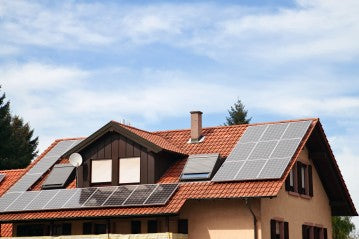
As solar energy continues to shine as a sustainable and eco-friendly power source, many of us are eager to embrace this green revolution. Solar panels are fantastic at harnessing sunlight and converting it into direct current (DC) electricity. But what about our beloved devices that run on alternating current (AC)? Enter the unsung hero of solar energy systems: the pure sine wave inverter. In this article, we'll uncover the versatility of pure sine wave inverters and explore the exciting array of devices they can power, making your solar energy journey an electrifying experience!
1. The Marvels of Pure Sine Wave Inverters
Before we dive into the devices that a pure sine wave inverter can handle, let's bask in the brilliance of these remarkable devices themselves. A pure sine wave inverter is the go-to choice for solar energy enthusiasts who want a seamless and efficient transition from DC to AC power. Unlike its modified sine wave counterpart, a pure sine wave inverter generates a smooth and consistent waveform that mimics the power from the utility grid. This clean power supply ensures compatibility with a wide range of devices and appliances, making it a top pick for those seeking superior performance and longevity for their electronics.
2. Energizing Your Household Appliances
Imagine a world where you can power your entire household with the sun's energy. Well, with a pure sine wave inverter, that dream becomes a reality! These powerhouses are up to the task of energizing a plethora of household appliances, including:
Kitchen Appliances: From whipping up your favorite smoothie with a blender to preparing a hearty meal with a microwave or an electric oven, a pure sine wave inverter handles kitchen appliances with ease.
Entertainment Gadgets: Movie night at home? Your pure sine wave inverter can power your LED TV, home theater system, gaming consoles, and even charge your laptop for an uninterrupted viewing experience.
Climate Control: Say goodbye to sweltering summers and chilly winters. A pure sine wave inverter is more than capable of running your air conditioner, electric fan, and room heater, providing comfort all year round.
3. Embracing Technological Marvels
Our lives are intertwined with technology, and the devices we use daily have become indispensable. Fortunately, pure sine wave inverters are well-equipped to cater to our tech-savvy needs:
Smart Device*: Keep your smartphones, tablets, and smartwatches charged and ready to connect with friends and family. A pure sine wave inverter ensures your precious gadgets stay juiced up.
Laptops and Computers: Whether you're working from home, studying, or just enjoying some leisure time online, a pure sine wave inverter provides the stable power your computer needs for peak performance.
Photography Gear: For the photography enthusiasts out there, your DSLR cameras, battery chargers, and other photography equipment can function flawlessly with the clean power from a pure sine wave inverter.
4. Empowering Outdoor Adventures
Solar energy isn't just limited to indoor applications. When you're out and about, a pure sine wave inverter can be your reliable companion:
Camping Trips: Keep the adventure alive while staying connected. Power up portable coolers, camping lights, and even charge your electric shavers for a civilized outdoor experience.
Boating and RVing: Pure sine wave inverters make life on the water or the open road more comfortable. From running marine electronics to powering appliances in your RV, you'll have the comforts of home wherever you go.
Conclusion
As you embark on your journey towards harnessing the power of the sun, a pure sine wave inverter becomes an indispensable ally. Its ability to convert solar-generated DC power into smooth and clean AC power opens up a world of possibilities. From running household appliances and charging smart devices to empowering outdoor adventures, the versatility of a pure sine wave inverter knows no bounds.
When purchasing a pure sine wave inverter, ensure it matches your solar energy system's specifications and your power requirements. Opting for quality and efficiency ensures your devices receive the best care and power supply, making your solar energy experience an electrifying success. Embrace clean energy with a pure sine wave inverter, and let the sun illuminate your life in more ways than one!


0 comments